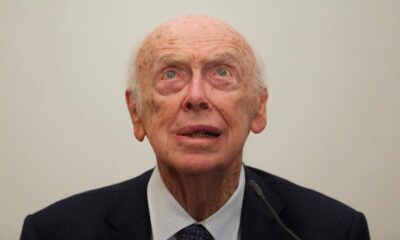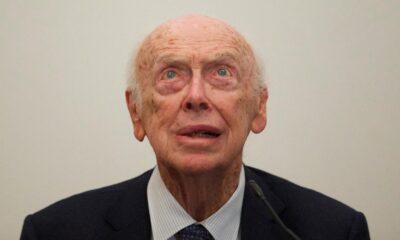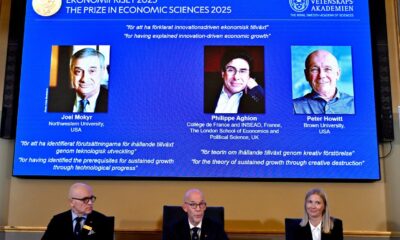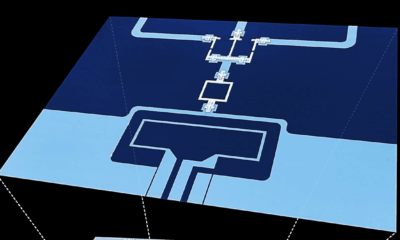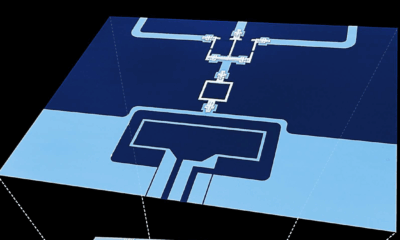Science
Nobel Prize for Physics Recognizes Breakthroughs in Quantum Technology
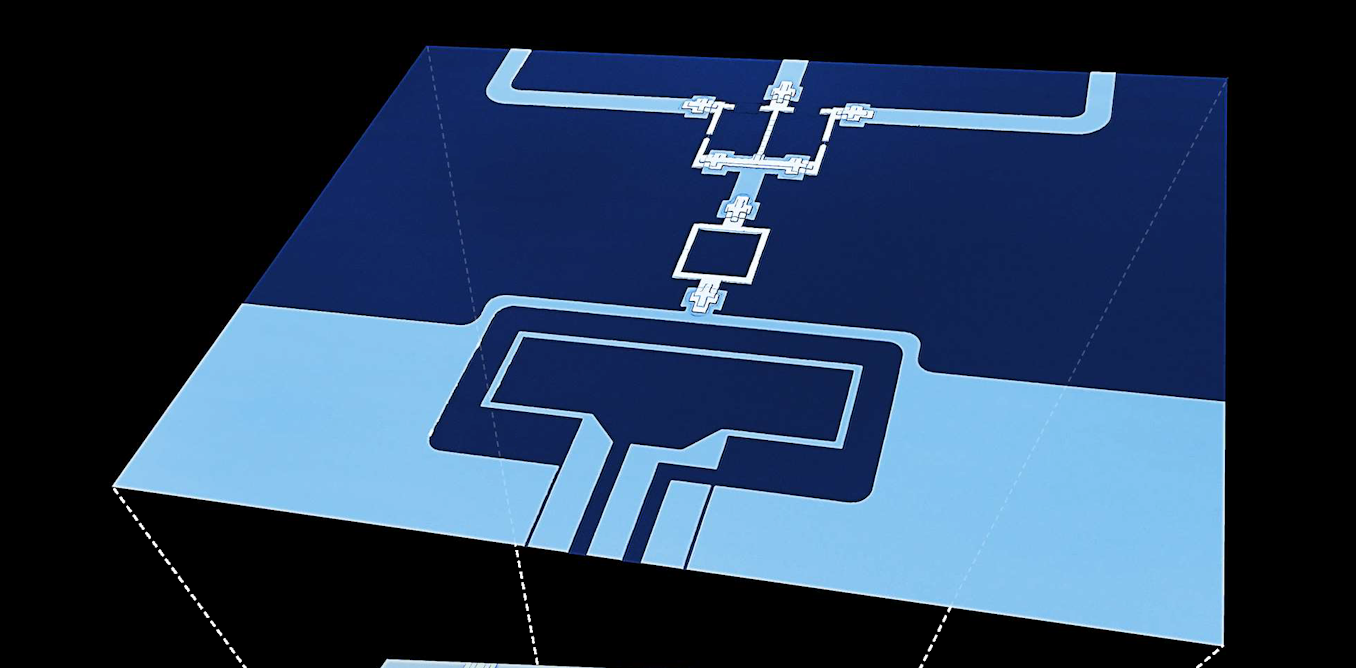
The 2025 Nobel Prize in Physics has been awarded to three pioneering scientists for their groundbreaking research in ultracold electronics, a field that has propelled the development of practical quantum technologies. The laureates, John Martinis, Michel Devoret, and John Clarke, demonstrated that quantum phenomena can persist in large superconducting circuits, fundamentally altering the landscape of quantum computing.
Quantum mechanics, which explores the peculiar behaviors of subatomic particles, offers the potential to revolutionize computation. These advancements can address complex problems across various fields, including chemistry and cryptography, which traditional computers struggle to resolve. The work of Martinis, Devoret, and Clarke laid the foundation for a new era in quantum technology, making significant strides in the understanding and application of superconducting circuits.
Groundbreaking Discoveries in Superconductivity
The pivotal research conducted by the laureates in the 1980s revealed that even sizable electrical circuits could exhibit quantum behavior. By utilizing circuits made from niobium and lead, which become superconductors when cooled to just above absolute zero, they demonstrated that these materials could carry electric current without generating heat. This process enabled them to illustrate that voltages and currents within these superconductors are governed by quantum mechanics.
Their work established that superconducting circuits could be described as single quantum particles. This simplification is crucial for harnessing superconducting circuits as a viable technology in quantum computing. These circuits now serve multiple purposes, including the simulation of physical systems and the development of precision measurement protocols. For instance, the Devoret group has recently developed an ideal microwave amplifier based on these circuits, which has applications in communications, radar, and scientific instruments.
The Rise of Superconducting Quantum Computers
The application of superconducting circuits in quantum computing is particularly noteworthy. Quantum bits, or qubits, are the fundamental units of quantum information, and they can exist in multiple states simultaneously, a property known as superposition. The unique combination of quantization, superposition, and entanglement allows quantum computers to process vast amounts of information more efficiently than classical computers.
Current research focuses on improving qubit coherence, controllability, and scalability. Various technologies, including trapped ions and photons controlled by optical circuits, are also being explored. Nonetheless, superconducting circuits hold a distinct advantage due to their adaptability; researchers can modify circuit designs to achieve desired qubit behaviors with predictable outcomes. This flexibility positions superconducting circuits as a leading candidate in the quest for scalable quantum computing solutions.
As the field continues to evolve, academic groups and industry players are collaborating to translate these research findings into practical applications. Companies are working on engineering large-scale quantum processors, while maintaining a strong focus on the foundational work initiated by the Nobel laureates.
The contributions of Martinis, Devoret, and Clarke extend far beyond their initial discoveries. Martinis has previously led Google’s quantum processor project and is now pursuing entrepreneurial ventures, while Devoret remains active in the Google effort. Clarke, now retired, has continued to influence the field through his late-career work on quantum circuits. Their legacies have shaped numerous careers in the field of superconducting circuits.
In recognition of their monumental achievements, the Nobel Prize serves as an acknowledgment of their lasting impact on science and technology. As current researchers strive to build upon their work, the future of quantum computing appears increasingly promising, with potential applications that could transform various industries.
Eli Levenson-Falk, a physicist studying superconducting circuits, emphasizes that the advancements made by the laureates continue to inspire new generations of scientists. He notes that the academic lineage stemming from Clarke reflects the profound influence these researchers have had on the field. As the quest for practical quantum technologies progresses, the contributions of Martinis, Devoret, and Clarke will remain pivotal in shaping the future of computing and beyond.
-

 World1 week ago
World1 week agoPrivate Funeral Held for Dean Field and His Three Children
-

 Top Stories2 weeks ago
Top Stories2 weeks agoFuneral Planned for Field Siblings After Tragic House Fire
-

 Sports3 months ago
Sports3 months agoNetball New Zealand Stands Down Dame Noeline Taurua for Series
-

 Entertainment3 months ago
Entertainment3 months agoTributes Pour In for Lachlan Rofe, Reality Star, Dead at 47
-

 Entertainment2 months ago
Entertainment2 months agoNew ‘Maverick’ Chaser Joins Beat the Chasers Season Finale
-

 Sports3 months ago
Sports3 months agoSilver Ferns Legend Laura Langman Criticizes Team’s Attitude
-

 Sports4 weeks ago
Sports4 weeks agoEli Katoa Rushed to Hospital After Sideline Incident During Match
-

 Politics2 months ago
Politics2 months agoNetball NZ Calls for Respect Amid Dame Taurua’s Standoff
-

 World2 weeks ago
World2 weeks agoInvestigation Underway in Tragic Sanson House Fire Involving Family
-

 Top Stories2 weeks ago
Top Stories2 weeks agoShock and Grief Follow Tragic Family Deaths in New Zealand
-

 Entertainment3 months ago
Entertainment3 months agoKhloe Kardashian Embraces Innovative Stem Cell Therapy in Mexico
-

 World4 months ago
World4 months agoPolice Arrest Multiple Individuals During Funeral for Zain Taikato-Fox



